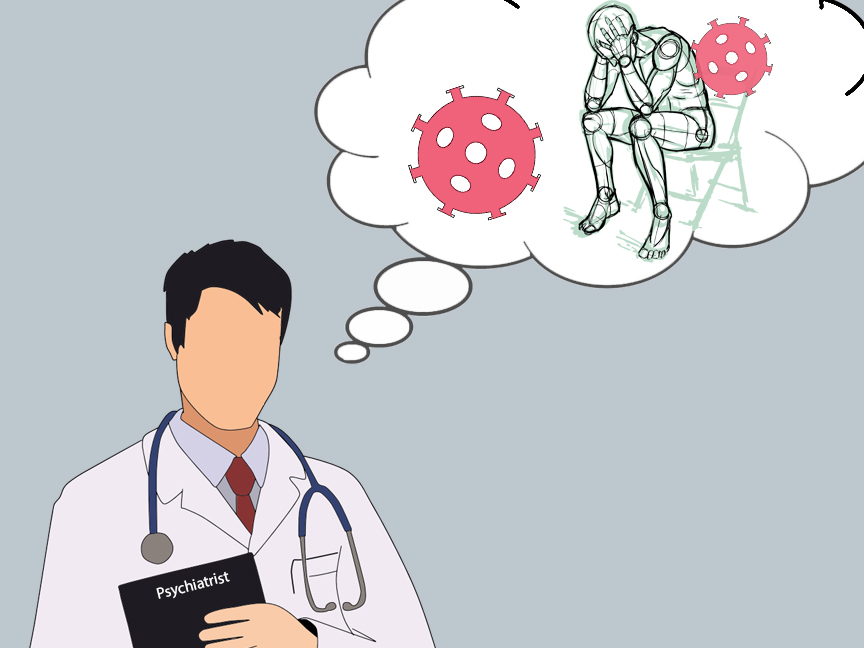OPINION: Coronavirus pandemic is affecting mental health
Many are reporting mental health issues related to COVID-19 besides physical risks including depression, anxiety
Mental health issues are some of the lesser-known side effects of a stressful worldwide pandemic.
September 24, 2020
As of June, around 40.9 percent of people in the U.S. are reporting at least one mental or behavioral health condition since the start of the pandemic.
Scientists and researchers are working tirelessly to figure out how all sides of this pandemic have effects on citizens and their mental health.
People aged 18-24 have a higher prevalence of anxiety disorder, depression, substance use and suicidal ideation. There are many services available for those who are struggling during this time.
There are many factors that contribute to the rise in reported mental health cases, said Cornelia Kirchhoff, assistant director of WSU’s Psychology Clinic.
“Some people might have been struggling before the pandemic and now have to work around things like social isolation,” Kirchhoff said. “Often people get caught in their own inner dialogues, and I think less interaction with others sometimes contributes to increased levels of anxiety.”
The transition from the hustle of American culture to staying inside with nothing to do hit many people hard. Organizations like the Centers for Disease Control and Prevention recommended many ways to help people adjust to these unprecedented times.
Reanne Cunningham works as a laboratory manager for WSU’s Neuropsychology and Aging Laboratory. Cunningham wrote in an email that even small efforts can make a difference.
“Please consider stepping outside, even if it is just to walk to the mailbox,” Cunningham wrote. “Feeling trapped in our living spaces, especially when tension starts building among the people you live with, can be so suffocating. A few quiet moments away, noticing the sky or looking at the grass, can really reorient you.”
Cunningham wrote these times can be uncomfortable for many people.
“Many of us have a long and comfortable history of using ‘doing stuff’ to distract us from our own thoughts and feelings,” Cunningham wrote. “Maybe you used to go to the gym a lot. Whatever it was that used to be your distractor has very likely been modified, if not completely taken away. This probably feels uncomfortable, but it can also be an opportunity to intentionally commune with yourself.”
WSU is currently offering free therapy resources to not just students, but families and children as well.
Kirchhoff said when they start charging for services again, the cost can be as low as $10. She also said students can receive free services at WSU’S Counseling and Psychological Services.
Certain factors increase the risk of groups already impacted by COVID-19. Discrimination, healthcare access, education and housing put groups at a further disadvantage during these times.
Kirchhoff said not having access to mental health services further impacts the risk.
“This crisis really hits some of our more vulnerable populations especially hard. First responders, caregivers, people of color are particularly impacted by that,” Kirchhoff said. “We see that it’s just hitting particular groups especially hard, but we all are affected by that to varying degrees.”

















